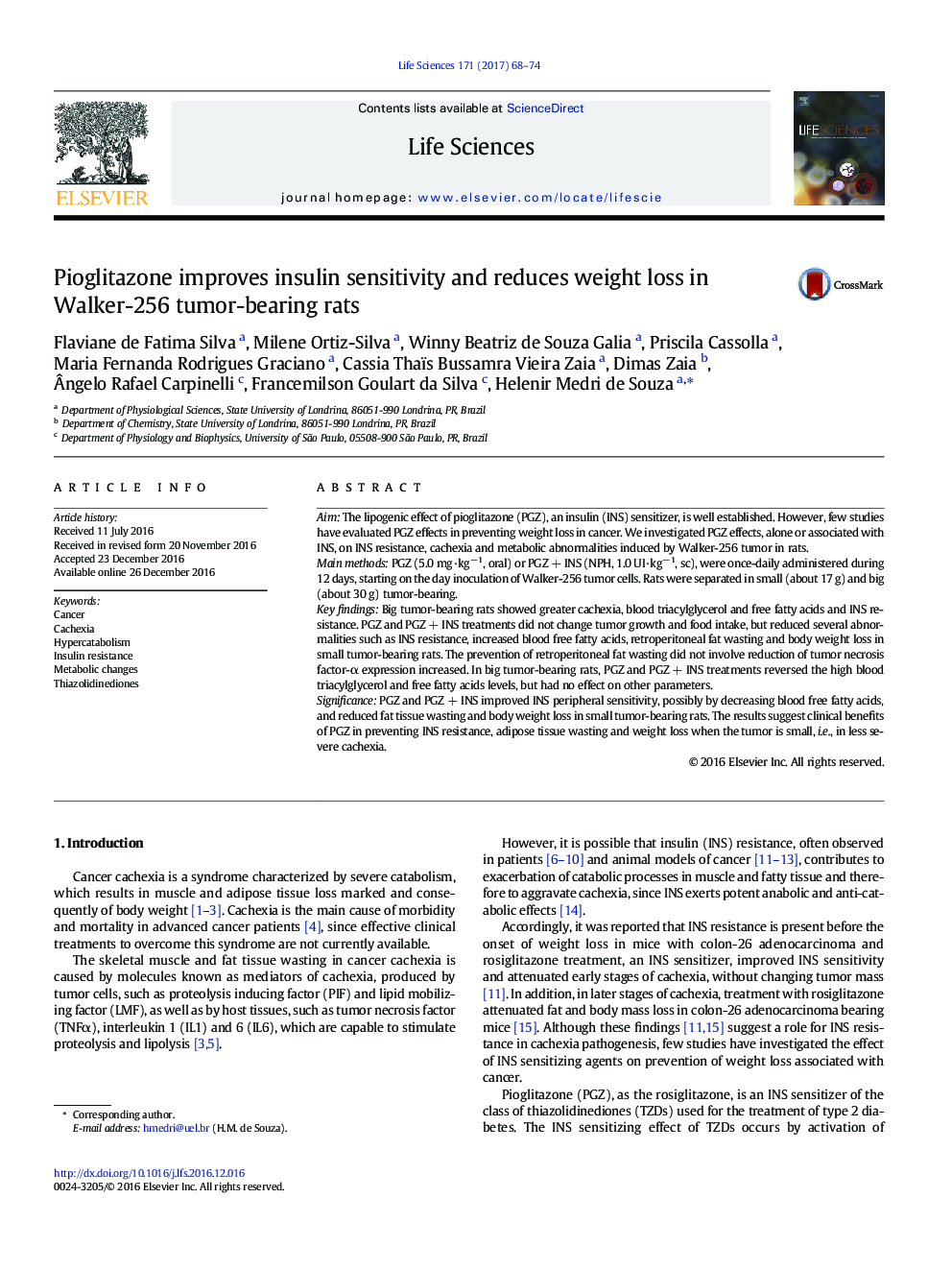| Article ID | Journal | Published Year | Pages | File Type |
|---|---|---|---|---|
| 5557016 | Life Sciences | 2017 | 7 Pages |
AimThe lipogenic effect of pioglitazone (PGZ), an insulin (INS) sensitizer, is well established. However, few studies have evaluated PGZ effects in preventing weight loss in cancer. We investigated PGZ effects, alone or associated with INS, on INS resistance, cachexia and metabolic abnormalities induced by Walker-256 tumor in rats.Main methodsPGZ (5.0 mg·kgâ 1, oral) or PGZ + INS (NPH, 1.0 UI·kgâ 1, sc), were once-daily administered during 12 days, starting on the day inoculation of Walker-256 tumor cells. Rats were separated in small (about 17 g) and big (about 30 g) tumor-bearing.Key findingsBig tumor-bearing rats showed greater cachexia, blood triacylglycerol and free fatty acids and INS resistance. PGZ and PGZ + INS treatments did not change tumor growth and food intake, but reduced several abnormalities such as INS resistance, increased blood free fatty acids, retroperitoneal fat wasting and body weight loss in small tumor-bearing rats. The prevention of retroperitoneal fat wasting did not involve reduction of tumor necrosis factor-α expression increased. In big tumor-bearing rats, PGZ and PGZ + INS treatments reversed the high blood triacylglycerol and free fatty acids levels, but had no effect on other parameters.SignificancePGZ and PGZ + INS improved INS peripheral sensitivity, possibly by decreasing blood free fatty acids, and reduced fat tissue wasting and body weight loss in small tumor-bearing rats. The results suggest clinical benefits of PGZ in preventing INS resistance, adipose tissue wasting and weight loss when the tumor is small, i.e., in less severe cachexia.
